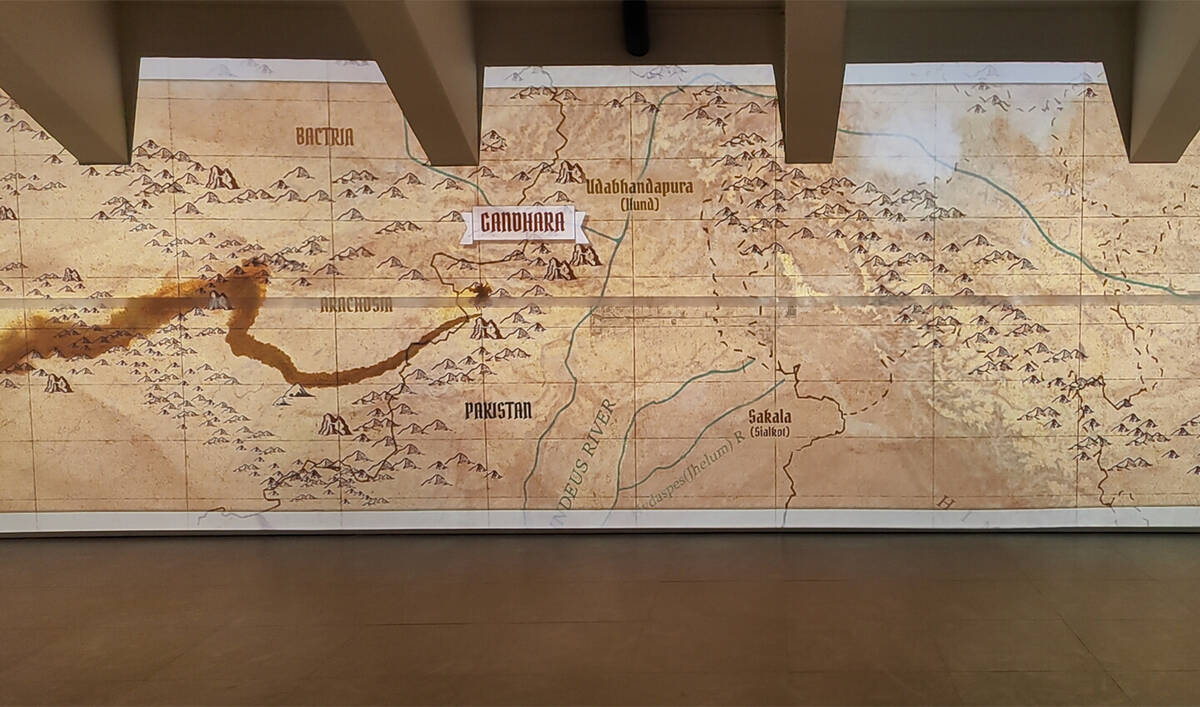ISLAMABAD: You saved up, you planned, and you are heading out for the journey of your life: the Hajj. For Muslims the world over, on August 9 this year, the sacred religious pilgrimage will begin.
Practical preparations will differ from pilgrim to pilgrim, with much of the logistical planning taken care of by troupes that plot out Hajj for their patrons. But if you are opting to pack for and execute Hajj largely on your own, these are the things you should consider packing for when you are on the go.
Backpack
Free hands will be important. You will be walking for many miles over just a few days and when traveling from place to place, especially in very crowded areas, it will be a relief not to worry about your shoulder bag, and to carry a lightweight backpack instead. There are countless medium-sized varieties in the market, from book bags to washable nylon varieties to knapsacks. Just be sure you get one with various compartments to keep everything organized and handy when you get from one place to another.
Extra pouches
Efficient packing will be key. Think ahead and keep extra pouches with you to keep from having to stop and rummage into the deep, dark depths of your bag. There are great options available on the Internet, like reusable, sealable silicon bags which are transparent so it’s easy to spot exactly what its contents are. Do keep one clean small pouch for your prayer beads, because those have a tricky habit of getting misplaced in large bags.
Belt-packs for passports
For holding valuables like your passport or crucial visa/Hajj requirements, we recommend a belt pack, which can also be worn across the chest or underneath your Hajj garments. This pack could also include unscented hand sanitiser and sun protection. When not in use, a foldable, no frills bag can be folded up and put back into your main backpack.
Travel-sized everything, including prayer mat
Though you can choose to take your favorite prayer mat from home, Makkah is well equipped to handle your prayer mat needs.
Keep it lightweight, much like your backpack, and go for the smaller variety if you’re comfortable doing so. You will be carrying the mat over long distances and will need it throughout your journey. If you want the traditional size that won’t fit into your bag, here’s a pro-tip: use a yoga mat sling which allows you to roll your mat up and just sling it across your back.
Reusable water container
Temperatures in mid August will sore to oppressive heights in Saudi Arabia and with non-stop activity during Hajj, it is imperative that pilgrims stay hydrated. There are water refilling stations outside of mosques and Zam Zam is readily available at most places. A hands free water bag in your backpack with a straw is probably the most practical idea, and you can get it at any place that sells hiking equipment.
First Aid Kit
Whether you buy one ready-made or you put one together, a first aid kit could be the difference between a comfortable Hajj and a Hajj distracted by bangs, bumps and bruises. When walking great lengths, blisters, cuts, and tripping are common and bandaids, blister bandaids, disinfecting wipes and soothing ointments, cotton pads, cough drops,and rehydration tablets should be close to you. Keep yourself hydrated at all times.
Toiletries (Unscented)
At Hajj, Muslims are instructed to leave fragrances at home so fragrance free hygiene products are easily available for purchase once you are there, at various kiosks and shops. Pack everything from unscented body wipes to shampoo in your main luggage, but always carry hand sanitizer and baby wipes (traveling with baby or without) in your handy backpack. For those prone to chaffing, we would recommend carrying some petroleum jelly as well. Additionally, pack fragrance free deodorant, your toothbrush, toothpaste, miswak, mouth wash and any other sanitary products.
Sun Protection
Hats are not permitted during Hajj, but umbrellas and sunblock (fragrance free) are a-ok, and a must-have! The sun will be beating down and the only respite you will get is a bit of shade from under your umbrella. Though women are covered from their wrists to their ankles, the hands, feet and face can be sunburnt quickly. Men must use some kind of sun-protection as they are more exposed to the rays. In addition to a light-weight umbrella (travel sized for your back pack!), consider packing a foldable paper fan and an after sun soother such as an aloe vera gel in pocket size.
Snacks
When you’re out on foot in high temperatures, combatting jet lag and needing to keep your energy levels up, you will need to munch on something. Dried fruits, dates and nuts will be available everywhere on your journey, but if you have dietary restrictions or preferences, pack those up in reusable bags (to lessen waste) for your Hajj.
Extras
The Hajj for many people is the result of a great deal of sacrifice, saving and spiritual struggle. Take time out of your day to write some thoughts down in a notebook with a pen, or as notes in your phone or tablet so you can always revisit the moments. Pack a good portable charger to keep your phone juiced. Make sure your clothing is pure cotton. If traveling with family, tie similar colored bandanas to your backpacks to easily find one another in case you get separated in the crowds.
At Hajj, focus on backpacking with these essential items
At Hajj, focus on backpacking with these essential items

- On August 9, millions of Muslims will head to Makkah to perform the pilgrimage
- The journey which requires miles of walking, needs an efficient and clever packing list
Pakistan turns to immersive technology to reimagine ancient Gandhara

- New gallery uses artificial intelligence and 3D visuals to present Buddhist heritage
- Visitors can explore archaeological sites digitally rather than through static displays
ISLAMABAD: At the Islamabad Museum, history no longer sits quietly behind glass.
In September 2025, the museum introduced Pakistan’s first Digital Immersive Gallery, an experiment in how ancient civilizations can be narrated in the age of artificial intelligence, 3D projection and virtual environments. Developed in collaboration with the Korea Heritage Agency, Pakistan’s Department of Archaeology and the National Heritage and Culture Division, the gallery marks a shift from object-centered displays to experience-based storytelling.
Rather than beginning with labels and timelines, the gallery opens with movement, sound and light. Visitors are invited to step into a reconstructed visual world shaped around Gandhara, one of South Asia’s most influential yet often under-explained civilizations that developed across what is now northwestern Pakistan and parts of eastern Afghanistan and later played a foundational role in the spread of Buddhism beyond the subcontinent.
“We have shown here in our Immersive Gallery how Buddhism flourished here, how it was introduced, how it declined and how it shifted to China, Korea and Japan from here,” Dr. Abdul Ghafoor, Deputy Director at the Department of Archaeology and Museums, told Arab News.
“In order to make it, the content developed by Korea has fully used AI and IT,” he continued. “AI and IT are common in Korea and other developed countries, but we have done it for the first time in Pakistan.”

Gandhara flourished between the first century BCE and the fifth century CE in this region, which served as a cultural crossroads, shaped by Greek, Central Asian, Persian and South Asian influences.
It was here that artists first began depicting the Buddha in human form, a visual language that later traveled along trade routes to Central Asia, China, Korea and Japan. This transmission of ideas, beliefs and artistic styles forms the core narrative of the immersive gallery.
“Inside the gallery, visitors are drawn into a world of interactive experiences, heritage documentaries they can zoom in and out of, Gandhara artifacts explored up close and photo zones where they can capture themselves against Pakistan’s most iconic sites,” Muhammad Azeem, Project Director at the Department of Archaeology and Museums, said.

While Gandhara anchors the gallery, the experience expands outward to place it within a longer and wider historical arc. One section is dedicated to Pakistan’s six UNESCO World Heritage Sites, offering visitors a compressed journey across centuries and regions.
“The main hall takes it further with a fully immersive 3D journey,” Azeem added. “Each seven-minute segment transports audiences to treasures like Mohenjo-Daro, Makli Necropolis, Lahore’s Shalimar Gardens and Sheesh Mahal, and the historic landscapes of Taxila and Takht-i-Bahi, making the past feel vivid, unforgettable and alive.”
For many visitors, the gallery’s appeal lies in how it lowers the barrier to understanding. Instead of long explanatory panels, history is introduced through visuals, motion and guided narrative.
“I saw different historical sites on big screens which was very exciting for me,” Fatima Nawaz, a government employee, said. “After that, I watched a complete documentary in the gallery, which was about 20 minutes long, and in which different historical sites related to Gandhara were highlighted.”
“Overall, it was a very good experience,” she added.

Researchers see the initiative as part of a broader global shift in how museums function.
“My topic is Cultural Heritage Museum, and with this research, I am studying and visiting museums,” Abdul Khaliq, an M.Phil. student at Quaid-e-Azam University, said. “One thing I have not seen in Pakistan before is the shift toward virtual reality.”
He added that it was a good step while calling the immersive gallery “very educational and gives us a lot to learn.”
For the officials involved in the project, the gallery is a starting point rather than a finished model.
“The response we have received from the public in Islamabad makes me feel that this should be done in all the museums, in all four provinces of Pakistan,” Dr. Ghafoor, the senior archaeology department official, said. “This is because it can make it easier to follow history.”
“I think such immersive galleries should be there in all the museums,” he added.











